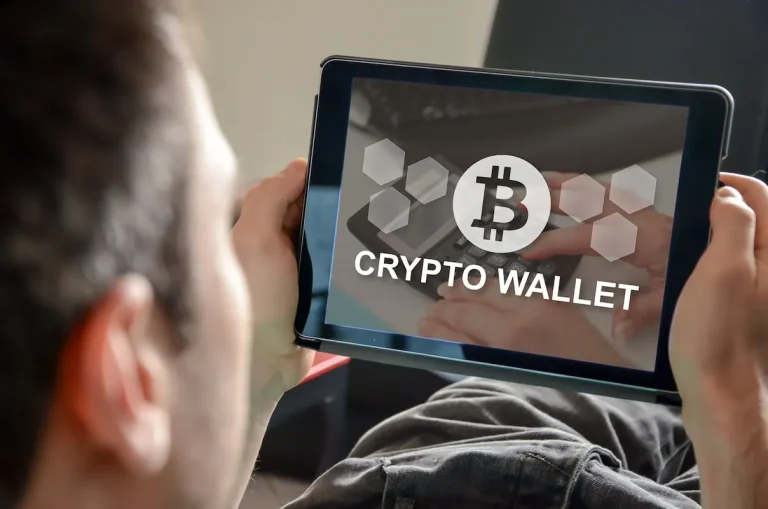Content
Both Bitcoin and Bitcoin Cash use a https://www.xcritical.com/ Proof of Work (PoW) consensus mechanism, where miners solve complex mathematical problems to validate transactions. However, Bitcoin has a more established network of miners, contributing to its higher security. Bitcoin Cash has implemented an Emergency Difficulty Adjustment (EDA) to ensure blocks are mined more consistently, providing more stable transaction processing times.
- You then have the option to hold on to your BCH token or sell it again via the exchange.
- Well, 2018 may yield some clues but we are unlikely to know the answer for some time yet.
- This makes micropayments and casual transactions much more feasible on Bitcoin Cash in practice.
- CashScript was released in 2020 and introduced Ethereum-like smart contract functionality to Bitcoin Cash.
- All Bitcoin holders at the time of the fork (block 478,558) automatically became owners of Bitcoin Cash.
Bitcoin Cash Historical Data (BCH INR)
Like other cryptocurrencies, Bitcoin Cash what is bitcoin cash is considered a highly volatile asset. Its price has fluctuated through many highs and lows throughout its existence, and there’s no way to make a guaranteed BCH price prediction. As always, it’s important to do your own research before investing in crypto. Some people still liked Bitcoin better, and others made even more versions of Bitcoin Cash, like Bitcoin SV (short for ”Satoshi Vision”). Today, Bitcoin Cash is still used by people who want a faster and cheaper way to send money compared to Bitcoin. You can use CFDs to trade on whether you think BCH/USD will rise (called ‘going long’) or fall (‘going short’).
What is the average daily trading volume of Bitcoin Cash?
While Bitcoin still dominates market cap as digital gold, proponents see BCH with its increased capacity and tiny fees as better optimized for smaller daily transactions as usable peer-to-peer digital cash. You can buy Bitcoin Cash through cryptocurrency exchanges like Bitpanda using fiat currencies, e.g. euros or U.S. dollars. It’s a good idea to first get familiar with the Bitcoin Cash price history and the Peer-to-peer current exchange rate. Once purchased, your BCH investment can be viewed and accessed in a digital wallet similar to a banking app. You then have the option to hold on to your BCH token or sell it again via the exchange.
Circumstances Behind the Bitcoin Cash Hard Fork
A blockchain hard fork refers to a radical change to the protocol of a blockchain network that makes previously invalid blocks/transactions valid, or vice-versa. This requires all nodes or users to upgrade to the latest version of the protocol software. Unlike Bitcoin (BTC), Bitcoin Cash aims to scale to meet the demands of a global payment system. At the time of the split, the Bitcoin Cash block size was increased from 1MB to 8MB. A hard fork is a protocol upgrade to a blockchain network that is incompatible with older versions of the software.
What are the philosophical differences between Bitcoin and Bitcoin Cash?
A CFD is a contract, typically between a broker and a trader, where one party agrees to pay the other the difference in the value of a security, between the opening and closing of the trade. A growing number of patrons are choosing Bitcoin Cash as a preferred payment method. They favor merchants who offer this payment option and actively seek them out. It empowers you to engage with your fellow human beings without intrusion.
In contrast, BCH has 32 MB blocks, although it currently uses about 1/10th of this capacity. Since consensus to raise the block size could not be reached, this group forked the Bitcoin blockchain and created a new cryptocurrency, BCH, with 8 megabyte blocks. Since its inception, Bitcoin Cash has experienced its own set of challenges and milestones. One notable event was another hard fork in November 2018, which led to the creation of Bitcoin SV (BSV), a separate cryptocurrency.
The seizing of capital from account holders (“bail-ins”) that occurred in Cyprus and nearly in Greece, demonstrated that bank deposits are only as safe as political leaders decide. Even under the best of conditions, banks can make mistakes, hold funds, freeze accounts, and otherwise prevent you from accessing your own money. Here’s a closer look at how these two crypto platforms compare and contrast from one another. Additionally, this same trait makes it ideal for international trade (if crypto usage isn’t already banned, of course). Consulting with a financial advisor and staying updated with the latest market news can also help you make an informed decision. Acquiring Bitcoin Cash through Wirex is both simple and straightforward.

Bitcoin Cash’s greatest advantage — its 32-megabyte block size — can process 100 transactions per second versus Bitcoin’s seven transactions per second, according to Bitpay. On the other hand, an ample block size translates to a sizable blockchain that can become a pain for users to download a copy. Aside from storage and auditing costs, less eyes on the public ledger can be interpreted as a weakness in the platform’s security. Less blocks also means less mining power, making for a weaker verification process when compared to Bitcoin.
People bought the coins as investments or to support the projects the coins were created to support. In early 2009 the Bitcoin software became available to the public for the first time. Satoshi Nakamoto mined the first 50 Bitcoins, thus launching the practice of crypto mining. It was a time when only a small team of programmers and enthusiasts participated in the development of what few of them anticipated would one day be viewed as a groundbreaking technology.
The technology behind BCH utilizes a peer-to-peer network of nodes that verify transactions and add blocks to the blockchain. BCH originated after a hard fork from the original Bitcoin blockchain in 2017 and employs a Proof-of-Work consensus mechanism. Miners earn rewards for verifying transactions and adding blocks to the blockchain.

In the crypto world, the blockchain serves as a public ledger of encrypted transactions that is maintained and updated by thousands of people all over the world. BTC’s high liquidity and widespread acceptance make it a popular choice for CFD trading. Its large market capitalization and established reputation may provide a stable foundation for speculation. However, traders should be aware of the potential for high transaction fees and slower processing times. However, Bitcoin Cash has removed RBF, making unconfirmed transactions irreversible. BCH’s larger block size and faster transaction times reduce the likelihood of double spending.
Bitcoin is often viewed as a store of value, prioritizing security and decentralization, even at the cost of slower transaction speeds and higher fees. Meanwhile, Bitcoin Cash focuses on being a transactional currency with faster and cheaper transactions, aiming to function more like cash for everyday use. Bitcoin transactions can sometimes take longer to process, especially during periods of high network congestion, leading to higher transaction fees. BTC averages one block every 10 minutes, so one could expect their transaction to take over 10 minutes to process. Anyone who wants to send it faster would need to try to have their transaction prioritized by paying a higher fee to jump ahead in the queue.
Most altcoins offer incremental improvements over the original Bitcoin protocol, features like greater speed, enhanced anonymity, and so on. Litecoin was among the first altcoins, which is why it is sometimes portrayed as the silver to Bitcoin’s gold. The most famous tale from this era concerns Laszlo Hanyecz, a software developer who bought two pizzas for 10,000 Bitcoins. At Bitcoin’s peak price, those two pizzas would be worth well in excess of $600 million. He believes it was a crucial step in establishing the growth of the crypto ecosystem.
